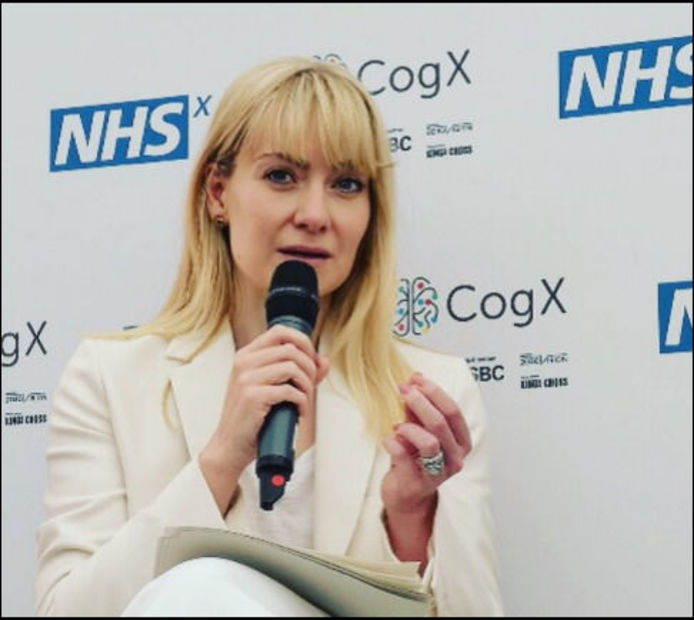Calls Now Open
2024 ADDF-Harrington + 2025 Harrington Scholar-Innovator Programs
WATCH NOW: ACCELERATING CURES IN RARE DISEASE
350 million people across the globe have a rare disease, affecting one in 17 people during their lifetime. Patients with rare diseases, and their families, often have a long journey to diagnosis and little hope for a cure, because fewer than 5% of rare diseases have approved treatments. Harrington Discovery Institute is working to advance scientific research and drug development to make curing rare diseases a reality.
Baroness Nicola Blackwood, a leader in health innovation policy and entrepreneurship, Chair of Genomics England and Member of the House of Lords Science and Technology Select Committee, lives with a rare disease known as Ehlers-Danlos Syndrome.
Ehlers-Danlos Syndrome (EDS) stands for a group of 13 inherited conditions that impact connective tissue, but the complexity of its presentation and lack of awareness amongst much of the medical community means that EDS patients often face misdiagnosis and late diagnosis.
“I come to genomics and rare disease research not just as a policymaker, but as a rare disease patient,” said Baroness Blackwood. “My own experience as an Ehlers-Danlos patient has been entirely difficult and has led me to my own conclusions about what it means to live with rare disease. I was undiagnosed for 30 years. Like many before me and many after me, I went through all of the usual experiences of the diagnostic odyssey. I got very sick from childhood. I was referred to many, many doctors who all tried their best ordering more and more complicated and invasive tests. And during that time, I was misdiagnosed, I was partially diagnosed. I was told it would just be anxiety. And unsurprisingly, I became very disillusioned with the medical process and thought that I would never find out what was wrong.”
Baroness Blackwood was able to find treatment but her process of finding specialists, medications, and support to stable her health was all but easy. She faced many setbacks along the way.
“This process has taught me some indelible lessons about how urgent it is to improve diagnosis and care for rare diseases for everyone, not just the lucky ones like me,” she said.

The diagnostic journey is just one of the hurdles faced by those living with a rare disease. While it's not a curative silver bullet, a diagnosis does provide an understanding of the patient’s condition. It lays the foundation for formulating long term care. In some cases, patients may be able to have a treatment plan. In the UK, the average diagnostic period lasts between four to five years. For others, it can be much longer. This is far too long. The consequences can be life threatening. And it's accompanied by all sorts of physical and mental health consequences, not just for the patient, but for their wider family and for their loved ones. And while each condition alone is rare, there are over 7,000 rare diseases in total, which together affect 350 million globally at some point in their life. That's one in 17 people.
Rare diseases disproportionately impact children, and a third of those children die before their fifth birthday, many without ever knowing what was wrong. And, the impact on our health system is enormous. Spending on rare diseases makes up 20% of healthcare costs in the UK. That's an estimated 2.2 trillion annually in the US health system. So, earlier diagnosis and the right treatment, wherever possible, would not only dramatically improve rare disease patients’ quality of life, but it would save a huge amount of money in health systems that are already under immense strain.
It is for all of these reasons that efforts like The Oxford-Harrington Rare Disease Centre are so important.
The Oxford-Harrington Rare Disease Centre brings together the strengths and capabilities of two leading rare disease Centres of expertise in the UK and the US, the University of Oxford and Harrington Discovery Institute. In working together towards the core mission of delivering cures for rare diseases, competition has instead been replaced with collaboration. This unique trans-Atlantic partnership with outstanding science and world-class drug discovery is so important to driving cutting edge rare disease breakthroughs to address the unmet needs in rare disease across the globe. It will deliver major clinical impact for patients and their families.
Contact Us to Support Rare Disease Treatments